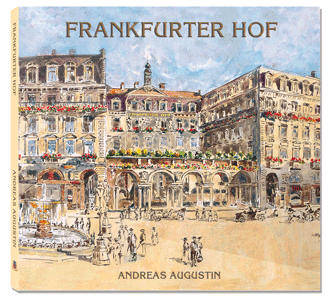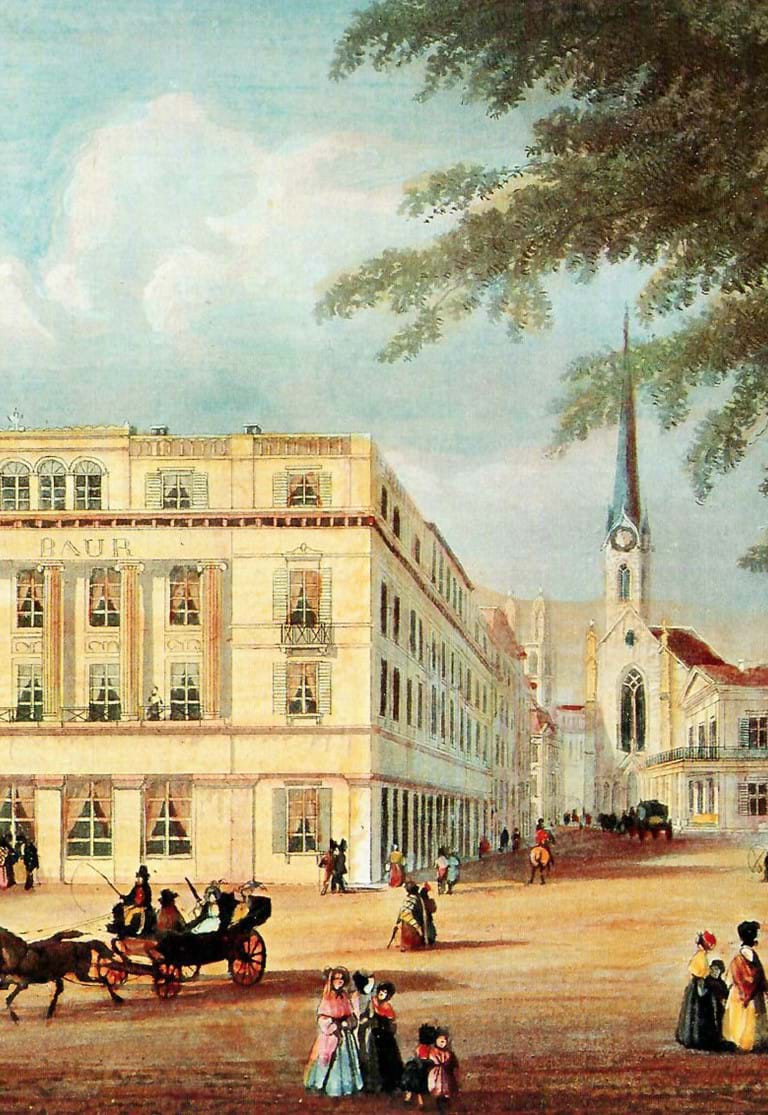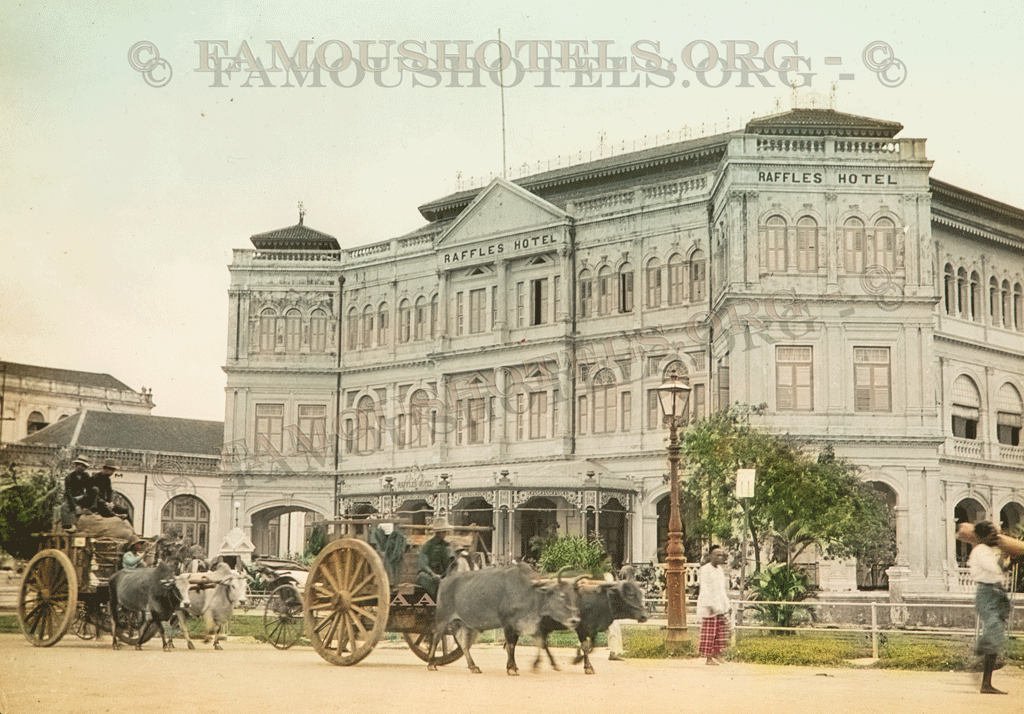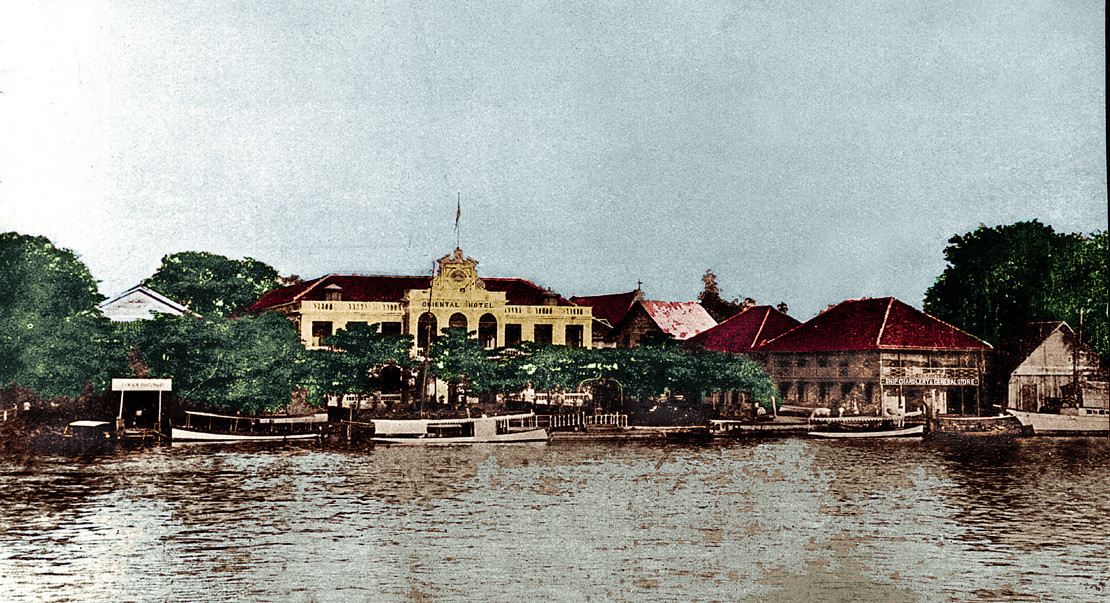The End of Dean’s Hotel
( words)
Dean's Hotel; Every Stone has a History
by Adil Zareef; Khyber Medical College Peshawar, Freelance Journalist
"They hardly gave us time to collect our thoughts. Nobody believed a historical site of such significance could ever be demolished. We were given 24 hours to pack and leave!" sighed one of the distraught staff members who had spent his lifetime in Dean's Hotel.
The hotel, which claimed that renowned celebrities like Professor Arnold Toynbee, Rudyard Kipling*, Sir Winston Churchill* (as a young soldier journalist on his way to Malakand), Quaid-i-Azam, King Nadir Shah of Afghanistan (in 1929) and so many others stayed, was witness to a century of unfolding history.
* editor's note: we have reasons to doubt this claim: Kipling left India for good in 1889 /1890; Churchill was only with the Malakand Field Force during the 1896-1897 campaign (according to an attentive reader)
Built in 1913 on 7.21 acres with sprawling lawns, it was a remnant of the colonial era. Memories of the "made in Berlin" piano dating back to 1897, the embossed tall mirrors and the varnished wooden floors in the grand ballroom with antique chandeliers are still vivid. It symbolized an understated architectural elegance of the Victorian period and had attracted admirers from across the globe.
Many Peshawarites, who had taken their "city of gardens" for granted, were shocked. They couldn't believe that a monument like Dean's Hotel would disappear out of sight suddenly - along with many other colonial buildings, parks and trees dating back to 500 years or more. All of a sudden Peshawar has become a smoke-filled, overcrowded, arid city, exhibiting hideous, tasteless, carbuncles of concrete and plaster, grossly disproportionate with the graceful pavilions, verandahs and elegant classical buildings that once dotted the Cantonment area. The presence of old trees lining the main boulevards and roads lent it a serene ambience. This has vanished as the trees have been felled from the major roads and intersections.
"Once a boulevard city lined with exquisite trees, scents, and foliage, Peshawar has now lost its charm. It is no longer the romantic Casablanca of the subcontinent as mentioned by many travellers and writers. It is fast becoming a Chinese shanty town," observes a respected professor of geography, Dr Mohammad Said, who is visibly shaken about the way unplanned development is going apace. With the 'market forces' in full swing and an unresponsive civil society tempted by instant monetary rewards and abetted by the thoroughly corrupt bureaucracy in control, the city has fallen victim to mindless consumerism. All remaining vestiges of a 2500 year-old living city are being demolished.
It all started with the advent of the Afghan jihad, as over two million refugees besieged the city. Besides the demography, the nouveau-riche culture invaded the once tranquil town. Drugs, guns and quick money changed the socio-economic and cultural values. While the war was waged on ideological grounds, its upshot was, among other ills, obscene materialism. Following the "civilized world", Pakistan has passionately embraced the consumer-capitalist Western model, but it also waged a jihad for the same cause with greater perils.
In the aftermath of this historical deluge, the middle class that had traditionally upheld the centuries-old values came under tremendous pressure. The elite was indifferent to the emerging challenges, and as a result took to greener pastures in the affluent localities of Peshawar, Islamabad and Lahore. Important political families of Peshawar have all but abandoned their heritage. Senior bureaucrats are more interested in championing environmental causes at Margalla hills and Lahore!
The real inhabitants, who are at the mercy of events, are forced into the daily grind of hard living and can barely spare time for altruistic causes. In the meantime, a new moneyed upward mercantile class has emerged with no cultural roots or sophistication. Many tribal drug barons, timber mafia lords and racketeers dictate the social standards. With the withdrawal of the middle classes from an active social role and the rise of religious fundamentalism as a new defining agenda, issues such as heritage, environment and culture have been condemned as being "Western-inspired" or worse, "secular ideas" that must be extirpated.
By the end of the 1980s, real estate prices had already spiralled beyond imagination. A new breed of entrepreneurs - the "builders" - was born. They were taking over the old city and demolishing historical structures with brazen impunity. The remnants of the walled city, and the historic gates finally gave in to this aggressive assault of money and greed.
Much earlier, in the 1970's, the city 'managers' had cut down the Great (Banyan) Pipal tree at Shah ji ki Dheri, described by Shin Fa Hian and Hiuen Tsang the famous Chinese pilgrims and historians who travelled to this place in 400 BC. According to H. Tsang, "Its branches are thick and the shade beneath, sombre and deep. The four past Buddhas have sat beneath this tree." The famous stupas built by Kanishka to the south of the Pipal tree have also disappeared.
One can go on lamenting the official apathy towards heritage. The Mohabat Khan Masjid, built by the Mughals, is decaying. These are our prized historical possessions that are being deliberately defaced. Why? I spoke to Zahoor Durrani who owns the prestigious "Sehrai Travels" and runs the Khyber Safari to Khyber Pass mostly for foreign tourists. "I am tired of approaching higher ups with suggestions to rescue several havelis, Bala Khanas, the Chitrali Bazar with exquisite houses, with great potential to foreign travellers, but it has fallen on deaf ears. It is heart breaking. Nobody seems to care."
What happened in Afghanistan is an eye-opener. It was the most tolerant society. The Mujahideen targeted historical sites, plundered the prestigious Kabul museum, and have demolished the renowned Bamiyan Buddhas and other historical artifacts. The Taliban have destroyed the socio-cultural ethos of Afghanistan in order to pursue the "purification" agenda of the sponsors. One only shudders to think what could be next in store for us.
"Like a painting... as far as the eye could see were fields of blossoms. In spring near Peshawar the fields of flowers are very beautiful indeed," gushed Babur in his memoirs.
According to reliable sources the previous Cantonment Board execurive officer pilfered millions since 1995 destroying the pristine beauty of Peshawar, denuding trees and demolishing historical buildings. The coveted job is considered highly lucrative and environmental bodies have conveniently shut their eyes to their doings.
Who would like to visit a city with monstrous shopping malls, skyscrapers and bargain centres? At the site of the Deans hotel, a multi-storeyed plaza screams to attract potential investors. Certainly, it does not define civilization or culture, by any standard. The Citizen's Forum in Lahore prevented the government from disfiguring Lahore Gymkhana, State Guest House and Staff College. In Peshawar most thinking individuals are suffering from a collective amnesia or nostalgia. No active lobbying and no civil body exists here. Occasional emotional outbursts by its honest citizens cannot compensate for the crying need to get our act together to rescue Peshawar. Do the authorities care - really?
famoushotels.org takes no responsibility for the content of this article, which was published on //khyber.org






